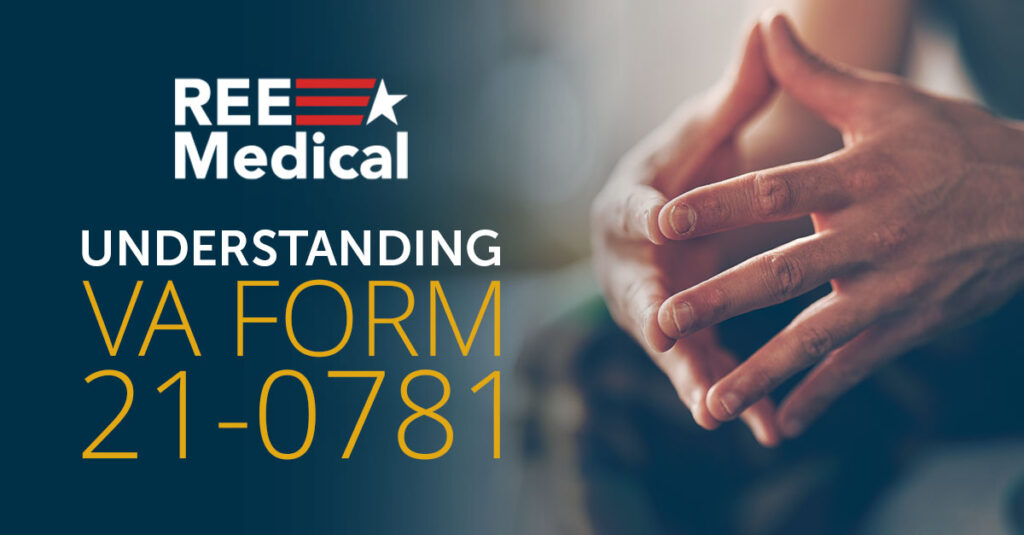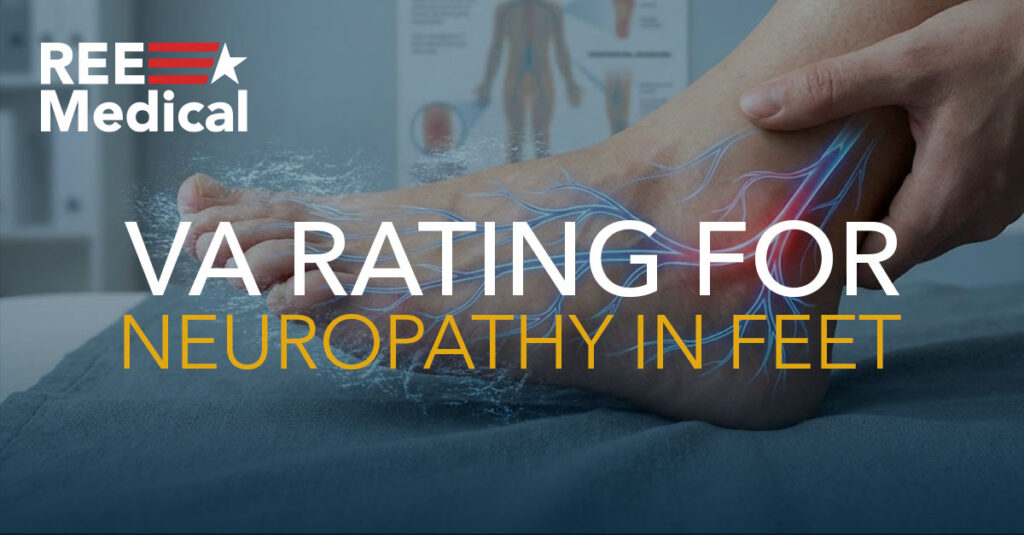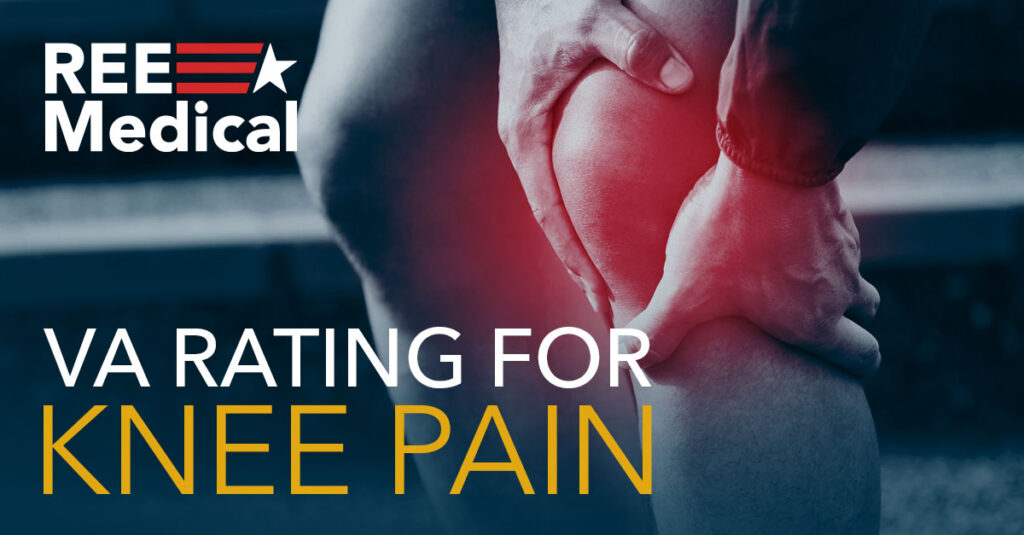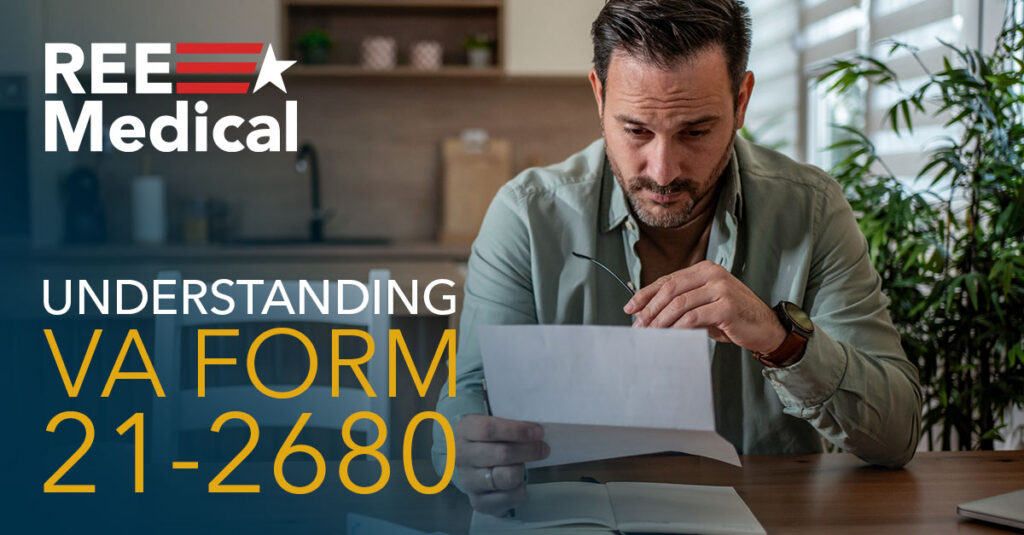VA Form 21-0781: The Statement That Supports Mental Health Claims Like PTSD
Some wounds don’t show up on an X-ray. Your service demanded strength under pressure, and the experiences that came with it can leave lasting marks. When it’s time to explain those events for VA Form 21-0781, the process can feel like reopening old chapters just to prove what you already live with every day.
The truth is, completing this form isn’t just paperwork – it’s a test of memory, patience, and courage. And doing it alone can be overwhelming. That’s where we come in. Our team helps veterans connect with qualified medical professionals to provide medical documentation that supports their claims. The aim is to ensure your statement is backed with credible, third-party medical evidence. We work with a trusted network of independent professionals who understand exactly what VA evaluators look for in PTSD-related claims.
Before you submit anything, reach out – the consultation is completely free. A quick chat with our experts can make the difference between a form that raises questions and one that clearly tells your story.
According to the VA, Form 21-0781 is used to provide details about the stressful events connected to a PTSD claim. Below, we’ll break down who needs this form and why it matters. And if you’re ready to take that step, reach out, and we will support you in moving forward with clarity and confidence.
Table of Contents
- What Is VA Form 21-0781?
- What the VA Uses This Form For
- When the VA May Request It
- Common Factors the VA Considers
- How Veterans Often Seek Support When Completing It
- Summary of Key Points from the VA
TL;DR
- VA Form 21-0781 is used by the VA to help connect a veteran’s reported in-service trauma to a current mental health diagnosis.
- The VA generally requires less corroboration for combat stressors than for non-combat events, though all claims must include specific details.
- The VA needs enough detail to verify the story
- The VA reviews the information on this form to verify and evaluate the described events. Consistency between the form, military records, and medical evidence can strengthen how the VA reviews a case.
- Independent medical documentation, such as evaluations from providers in REE Medical’s network, can help ensure your medical evidence is clear, credible, and aligned with VA review standards.
- According to the VA, this form is typically submitted along with an initial PTSD-related claim.
What is VA Form 27-0781?
VA Form 21-0781, the Statement in Support of Claimed Mental Health Disorders Due to In-Service Traumatic Events (commonly known as a “stressor statement) is the form a veteran would use to apply for related benefits and/or services.
Some, but not all of the mental health conditions that would count are post-traumatic stress disorder (PTSD), depressive disorder, generalized anxiety disorder, and bipolar disorder.

What This Form Actually Does for Your Claim
This form functions as a record that helps the VA understand a veteran’s experiences and how those events may relate to their current mental health condition. It provides space for veterans to describe specific incidents, dates, and circumstances so the VA can review the information alongside military and medical records.
For instance, details about symptoms such as recurring nightmares, panic attacks in crowded settings, or difficulty maintaining relationships can help illustrate how service-related events continue to affect daily life. The VA uses this documentation to verify that a stressor occurred and to assess its ongoing impact as part of the evaluation process.
Service connection just means proving a current disability stems from military service. VA Form 21-0781 establishes this connection by documenting specific incidents, dates, locations, and circumstances of traumatic events. Without this foundation, the veteran is asking the VA to approve a claim based on symptoms alone, which they legally can’t and won’t do.
As noted by Berry Law, many PTSD claims are delayed or denied due to incomplete or vague stressor statements on Form 21-0781, emphasizing the critical importance of thorough completion.
Why the VA Takes This Form Seriously
The VA created this form to standardize how veterans document traumatic military experiences and establish clear documentation trails. This isn’t bureaucratic red tape; it’s the veteran’s opportunity to create an official record that protects their claim and provides the VA with specific information they need to verify the veteran’s experiences.
Once the VA Form 21-0781 is submitted, it becomes the veteran’s official record. This protects the veteran’s claim because it establishes the official story of traumatic events early on and can be referenced by raters and examiners throughout the claims process.
When Timing Matters Most
According to the VA, Form 21-0781 is typically used to document in-service stressor events related to a PTSD claim. Submitting this form with an initial claim allows the VA to review stressor information as part of the evaluation process and may reduce the need for later evidence requests.
The VA also notes that service members with fewer than 90 days remaining on active duty may include this form when filing a pre-discharge claim.
If the VA previously denied a PTSD claim because stressor details were incomplete or unclear, Form 21-0781 can be used to provide additional information or clarify events already described in the record.
Different Types of Military Trauma
The VA has different standards for different types of trauma, which affects how they evaluate and verify your stressor events. Combat-related stressors get special treatment due to the “combat presumption” rule. This means the VA requires less corroboration for combat stressors compared to other types of trauma.
However, the veteran still needs to provide specific details about what happened, when, and where. Even with combat-related recognition, the VA typically requires event details so evaluators can understand the veteran’s experiences.
According to Nolo, veterans who received a Combat Action Ribbon (for the Navy, Marine Corp, or Coast Guard), Combat Action Badge (for the Army), Purple Heart, or Combat Infantryman Badge may not be required to write a stressor statement, as the VA recognizes these awards as evidence of combat exposure. But the veteran may still need to fill out a 21-0781 Form with the award(s) listed as proof of combat experience.
Military Sexual Trauma (MST) requires different evidence because these incidents are often unreported at the time they occur. The VA recognizes this reality and accepts alternative forms of evidence. The veteran can use behavioral changes, medical treatment records, or statements from people who noticed changes in their behavior. An official report or conviction to support an MST claim may not be needed.
Non-combat traumatic events like training accidents, witnessing deaths, or natural disasters require more corroborating evidence. The VA will typically look for official reports, witness statements, or other documentation that confirms these events happened.

When the VA Recommends Filing
Understanding how VA disability benefits for PTSD work helps clarify when VA Form 21-0781 is required.
Not every PTSD claim requires VA Form 21-0781, but most do. The key factor is whether the VA can easily verify stressor events through the veteran’s existing military records. If their PTSD stems from well-documented combat operations or other officially recorded events, they might not need this form.
But if the veteran’s trauma involves personal experiences, specific incidents, or events that aren’t clearly documented in their service records, VA Form 21-0781 becomes essential for establishing a claim.
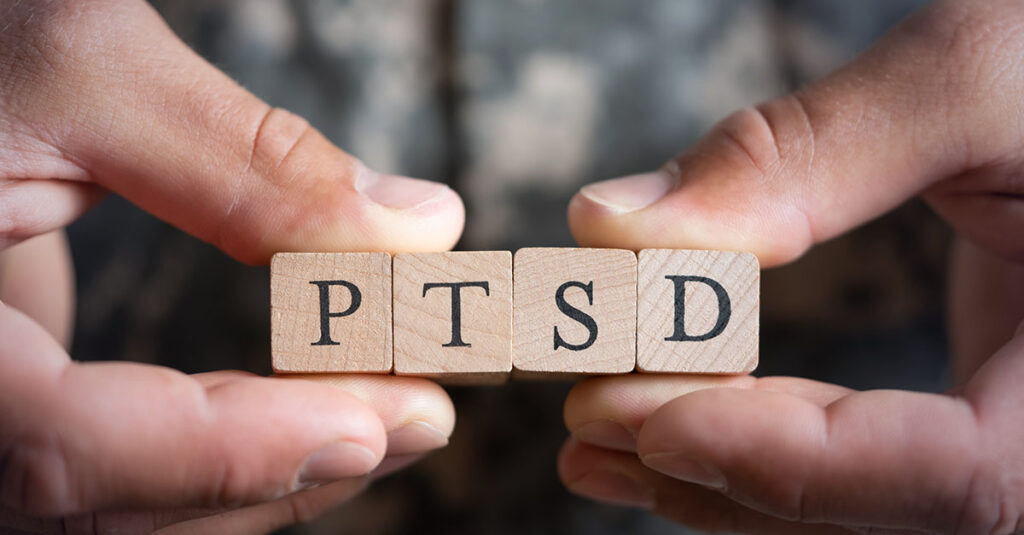
First-Time PTSD Claims
Even combat veterans need to provide enough detail for the VA to understand what happened to them. Statements like “I was in combat” aren’t sufficient. They will need to describe specific traumatic incidents and explain how they were affected by them and provide enough context for the VA to understand the severity of their experiences.
If a veteran’s PTSD stems from non-combat military experiences, VA Form 21-0781 is virtually always required. These situations include training accidents, sexual assault, witnessing suicides, or other traumatic events that occurred during service but weren’t part of combat operations.
Strengthening Existing Claims
VA Form 21-0781 can be powerful for strengthening existing claims or appealing denied claims. If an initial PTSD claim is denied due to insufficient evidence, this form allows the veteran to provide the missing stressor information.
It helps the VA when additional details clearly reference previously reported events rather than introducing new ones.
Example: Strengthening a Denied Claim
A veteran (“John”) once described his experience on VA Form 21-0781 to provide more detail about an in-service event. He reported that during a patrol in Afghanistan, his convoy encountered an IED explosion and that he assisted with casualties afterward.
In this type of example, the VA uses the information on Form 21-0781, alongside unit records, witness statements, and other official documentation, to evaluate whether a reported stressor can be verified. The example illustrates how the form facilitates the VA’s understanding of the circumstances described by the veteran.

The Prepared Veteran
Comprehensive documentation—such as personnel files or medical records—provides context the VA uses when reviewing stressor descriptions. This can include military personnel files, medical records from military treatment facilities, unit histories, deployment records, award statements, and any existing documentation related to the traumatic events they’ll be describing.
Having relevant records available supports accuracy and provides verifiable details for VA review. Too many veterans guess at dates or locations, only to contradict their own service records.
Accurate Personal Information
According to the VA, Form 21-0781 requests a veteran’s identifying information exactly as it appears in official military and service records (such as the DD-214). The VA notes that differences in spelling or numbers between documents can lead to delays while verifying records.
The VA also reviews this form to understand which mental health conditions are being claimed. Veterans often list PTSD and any related diagnoses (for example, depression or anxiety) so the VA can review the full medical and service history connected to the claim.
Writing Strong Stressor Events
Weak: “I had a bad experience in combat that gave me PTSD.”
Strong: “On March 5, 2007, while serving with the 3rd Infantry Division in Baghdad, Iraq, my convoy was ambushed. An improvised explosive device (IED) detonated near my vehicle, injuring several team members. I witnessed my squad leader sustain life-threatening injuries. Since that event, I have suffered from persistent nightmares, anxiety, and hypervigilance, affecting my daily life and ability to work.”
The examples above are for informational and educational purposes only. They are not instructions or guidance on how to complete VA Form 21-0781 or any other VA documentation. REE Medical is not a law firm or Veterans Service Organization (VSO) and does not prepare, present, or file VA claims. Any examples provided are solely to illustrate how the VA reviews and interprets information described on its own forms. Veterans seeking individualized assistance with claims or appeals should contact an accredited VSO, claims agent, or attorney recognized by the U.S. Department of Veterans Affairs.
Common Mistakes That Kill Claims
Common filing errors frequently occur when VA Form 21-0781 lacks sufficient detail or documentation.
According to Berry Law, filing an incomplete or vague form can result in delays or denials, but with accurate information, strong supporting evidence, and legal assistance if needed, veterans can improve their chances of receiving the benefits they have earned.
Consistency Between Records and Statements
Some veterans find it helpful to review their service records thoroughly before completing the form to ensure dates and locations match official military records when possible.
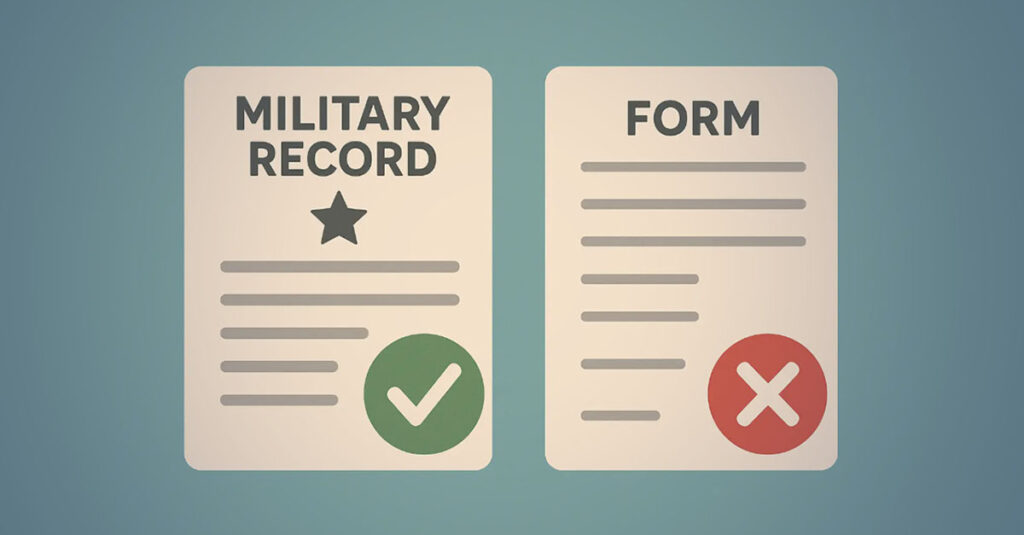
Building Strong Evidence
According to the Department of Veterans Affairs (VA), stressor evidence helps establish whether a traumatic event occurred during service. The VA reviews documentation that supports the occurrence of in-service events and how those events are verified through records or testimony.
When evaluating PTSD-related claims, the VA may consider a range of materials, including:
- Unit records and official reports that document the described events
- Buddy statements from individuals who witnessed the events or observed behavioral changes
- Medical records showing when a veteran sought care following specific incidents
- News coverage of major incidents involving the unit or location
- After-action reports and casualty documentation
These materials help the VA understand the historical and situational context of the events being reviewed. Unit records, witness statements, or contemporaneous news reports may provide additional corroboration during the evaluation process.
Creating Timelines That Tell a Story
Chronological information can help VA reviewers understand the sequence of events and how experiences unfolded over time. For example, when documentation includes consistent references to particular incidents and subsequent symptoms, it may help clarify the progression of a condition from service to the present day.
Some veterans maintain personal notes or timelines that outline significant service experiences, which can later support accurate recollection when discussing their history with licensed medical providers or VA examiners. Documentation that includes behavioral or emotional changes noted in medical or personnel records may also assist the VA in understanding the overall pattern of impact.
This content is provided for general informational purposes only and does not constitute guidance on filing, preparing, or presenting a VA claim. REE Medical does not prepare, present, or submit VA disability claims. The Department of Veterans Affairs is solely responsible for evaluating and determining all disability ratings.

Getting the Right Kind of Help
Medical evidence plays a central role in how the VA evaluates VA Form 21-0781 and related documentation.
The right professional support can significantly improve both the quality of your VA Form 21-0781 and your overall claim success rate. However, not all professionals understand VA disability claims, and working with the wrong people can actually hurt your case.
Mental Health Professionals Who Get It
Mental health professionals can help veterans safely process traumatic memories while ensuring their form accurately reflects the clinical impact of their experiences. However, they need to work with providers who understand military trauma and VA disability evaluation criteria.
Working with mental-health professionals experienced in military trauma can lead to clearer, more complete documentation for VA review. The right doctor can give a detailed clinical opinion that connects the veteran’s stressors to current symptoms using language that aligns with VA rating criteria.
Therapists familiar with VA evaluation criteria can prepare documentation that aligns with VA standards. Comprehensive psychological evaluations are most useful when evaluators understand how the VA assesses mental-health documentation.
The Disability Benefit Questionnaire (DBQ) Connection
VA Form 21-0781 documentation complements Disability Benefit Questionnaires (DBQs) by outlining stressor details alongside clinical evidence.
Documenting stressor events effectively is only half the battle. VA Form 21-0781 establishes what happened during military service, but veterans also need robust medical documentation to show how those events affect them today.
This medical evidence helps to determine their disability rating and ultimately how much compensation they receive. Professional medical evaluations that complement the VA Form 21-0781 submission can make the difference between a denied claim and a successful one.
Experienced providers who specialize in VA disability claims understand how to document the full scope of PTSD symptoms and their impact on daily functioning. They know how to create DBQs that align with VA rating criteria and support the stressor events that have been documented.
REE Medical’s network of independent providers delivers clear, detailed medical evaluations that help veterans document their ongoing symptoms and changes over time. While REE Medical does not provide medical evidence for initial PTSD claims, its evaluations are often used after a VA rating decision to support clarity and accuracy in future filings or rating reviews.
With transparent, flat-rate pricing and no commission-based fees, veterans can access independent medical documentation without uncertainty about costs. Each evaluation focuses on the medical side of the story translating service-related conditions and current symptom severity into objective, independent medical findings the VA can review as part of its own process.
REE Medical connects veterans with independent, licensed medical professionals who provide thorough, accurate DBQs. REE Medical does not prepare, present, or prosecute VA disability claims; all rating decisions are made solely by the Department of Veterans Affairs.
Final Thoughts
According to the VA, Form 21-0781 is used to document the in-service events related to a PTSD claim. The information veterans provide helps the VA understand the connection between their reported experiences and current mental health conditions.
While REE Medical does not assist with completing or filing VA forms, our network of independent providers can offer objective, post-decision medical evaluations that help clarify ongoing symptoms and ensure medical evidence is clearly documented.
If you’re seeking independent medical documentation or an evaluation for a potential rating review, our team can connect you with a provider who understands how the VA reviews medical evidence.
DISCLOSURE
REE Medical, LLC is not a Veterans Service Organization (VSO) or a law firm and is not affiliated with the U.S. Veterans Administration (“VA”). Results are not guaranteed, and REE Medical, LLC makes no promises. REE Medical’s staff does not provide medical advice or legal advice, and REE Medical is not a law firm. Any information discussed, such as, but not limited to, the likely chance of an increase or service connection, estimated benefit amounts, and potential new ratings, is solely based on past client generalizations and not specific to any one patient. The doctor has the right to reject and/or refuse to complete a Veteran’s Disability Benefit Questionnaire if they feel the Veteran is not being truthful. The Veteran’s Administration is the only agency that can make a determination regarding whether or not a Veteran will receive an increase in their service-connected disabilities or make a decision on whether or not a disability will be considered service-connected. This business is not sponsored by, or affiliated with, the United States Department of Veterans Affairs, any State Department of Military and Veterans Affairs, or any other federally chartered veterans service organization.

